
Neuromancer is a 1984 novel by William Gibson, a seminal work in the cyberpunk genre and the first winner of the science-fiction "triple crown" — the Nebula Award, the Philip K. Dick Award, and the Hugo Award. It was Gibson's debut novel and the beginning of the Sprawl trilogy. The novel tells the story of a washed-up …
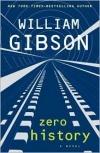
Zero History is a novel by William Gibson published in 2010. It concludes the informal trilogy begun by Pattern Recognition and continued by Spook Country, and features the characters Hollis Henry and Milgrim from the latter novel as its protagonists.

All Tomorrow's Parties is the third and final novel in William Gibson's Bridge trilogy. Like its predecessors, All Tomorrow's Parties is a speculative fiction novel set in a postmodern, dystopian, postcyberpunk future. The novel borrows its title from a song by Velvet Underground. It is written in the third person and …

Spook Country is a 2007 novel by speculative fiction author William Gibson. A political thriller set in contemporary North America, it followed on from the author's previous novel, Pattern Recognition, and was succeeded in 2010 by Zero History, which featured much of the same core cast of characters. The plot …
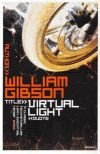
2005: Welcome to NoCal and SoCal, the uneasy sister-states of what used to be California. Here the millenium has come and gone, leaving in its wake only stunned survivors. In Los Angeles, Berry Rydell is a former armed-response rentacop now working for a bounty hunter. Chevette Washington is a bicycle messenger turned …
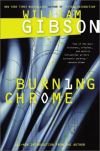
"Burning Chrome" is a short story, written by William Gibson and first published in Omni in July 1982. Gibson first read the story at a science fiction convention in Denver, Colorado in the autumn of 1981, to an audience of four people, among them Bruce Sterling. It was nominated for a Nebula Award in 1983 and …
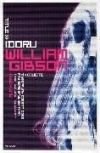
Idoru is the second book in William Gibson's Bridge trilogy. Idoru is a science-fiction novel set in a postmodern, dystopian, cyberpunk future. The main character, Colin Laney, has a talent for identifying nodal points, analogous to Gibson's own: Laney’s node-spotter function is some sort of metaphor for whatever it …

Mona Lisa Overdrive is a cyberpunk novel by William Gibson published in 1988 and the final novel of the Sprawl trilogy, following Neuromancer and Count Zero. It takes place eight years after the events of Count Zero and is set, as were its predecessors, in The Sprawl. The novel was nominated for the Nebula Award for …

Count Zero is a science fiction novel written by William Gibson, originally published 1986. It is the second volume of the Sprawl trilogy, which begins with Neuromancer and concludes with Mona Lisa Overdrive, and is a canonical example of the cyberpunk subgenre. Count Zero was serialized by Isaac Asimov's Science …
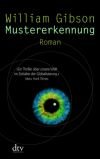
Pattern Recognition is a novel by science fiction writer William Gibson published in 2003. Set in August and September 2002, the story follows Cayce Pollard, a 32-year-old marketing consultant who has a psychological sensitivity to corporate symbols. The action takes place in London, Tokyo, and Moscow as Cayce judges …

 English
English Español
Español Deutsch
Deutsch